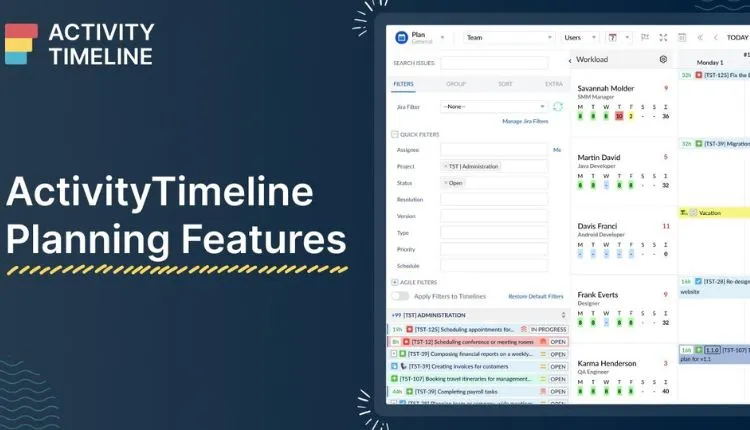
A step-by-step guide to hiring a consultant
A professional in your industry area who you hire as a consultant may offer important advantages, fresh perspectives, and solutions to your company’s problems.
However, there is a chance that hiring a consultant could be a waste of money, and in a growing organization, every penny counts.
What steps should you take to determine who you should hire to offer direction and counsel in order to help your business succeed and expand?
- Determine whether you actually need a consultant’s services
Take into account the skills that your staff possess, as they are your company’s greatest asset. Your bookkeeper might provide ideas for improving collection rates. The shipping manager may be able to reduce postal expenses.
Examine the resumes of your personnel to determine not just their present positions, but also the knowledge and experience they contributed to past employers.
You need reliable information and solid advice, and you might not need to look other than the organization.
- Before you start your search, draught a work statement
A statement of work (SOW), if you decide to hire a consultant, details exactly what you want the consultant to do. It also describes the objectives of the work and what success will entail.
- Know what to anticipate from a consultant
Any business consultant you hire should provide precise information rather than generalizations (quantifiable data).
An excellent consultant provides new insights to assist you improve your decision-making processes, but they do not take the role of the client.
You will stay in the building long after your consultant has departed, even if they are expected to complete certain tasks within a given amount of time.
- Seek for a consultant with expertise in your sector
You might anticipate general responses if you hire a generalist.
Employ a consultant who is familiar with your business, your target market, and the desires of your demographic – someone who isn’t required to learn about the issues you’re encountering.
The ideal expert is already knowledgeable about the problems you face in your sector.
- Hire a consultant full-time
Part-time workers might not have the time to focus on the issues facing your business. Examine the certifications and credentials issued by organizations that certify consulting firms.
The Institute of Management Consultants is an excellent place to begin. Is your consultant an employee of the business? Get the full-time analysis your organization needs and is willing to pay for by spending a bit more.
- Ask for and prepare references
Professional consultants with in-depth knowledge are happy to offer references from previous clients. To make sure the prospective client is a good fit for your business, contact these past clients.
- Request copies of the findings and analyses of the consultant
Are the findings verified? Is the guidance industry-specific? Is the consultant performing a thorough examination or just a quick look-over? You might have the knowledge you need to make the greatest choice by looking into the results of prior cooperation.
- Participants in interviews
Find a professional with whom you can work together who is not just skilled but also open to adapting to the needs of your organization.
A consultant might prove to be a helpful tool if both sides cooperate to ensure the success of the venture.
- Verify the consultant’s objectivity
Dealing with a consultant who is also giving advice to a rival business in your area is not a good idea.
Working with a consultant who also advises one of your vendors would be a clear conflict of interest. Select a consultant who is not connected to any other businesses operating in your sector.
- Make an agreement.
Have your company’s lawyer draught a formal agreement between your business and any consultants you hire. The following details ought to be included in the contract:
- Beginning and ending dates
- Work-related benchmarks for the consultant’s projects
- Payment goals
- Amount of support provided after the interaction is over (phone, in-office, tech support only, etc.)
- Contract termination clauses and a provision for contract extension if the consultant’s performance falls short of expectations
Business Advice
One of the most well-liked and lucrative subsets of consulting is management consulting. IBISWorld projects that by 2022, the management consulting industry will be worth $263.5 billion.
The duties of a management consultant are governed by their area of expertise, the organization in which they work, and the client.
For the most part, they work together with the client’s executive team to resolve complex business problems. To do this, they assess certain procedures and offer suggestions for how to improve or implement brand-new ones.
Strategic Planning
At the top echelons of the organization, strategy consulting, a type of management consulting, is also carried out.
A strategy consultant offers strategic recommendations for resolving particular management topics like cost reduction, improved operational efficiency, or identifying new opportunities and markets for a company.
As opposed to a management consultant who is tasked with identifying and solving problems that affect the entire organization.
When a firm is preparing for change or managing uncertainty, such as during or after a merger and acquisition, this type of consultant is usually employed to help.
Advice on Pricing Strategy
A type of strategy consulting called pricing strategy consulting helps firms choose the right price for their goods and services.
In order to gain a competitive edge and boost sales during a period of stagnation, this type of consultant helps organizations design or adjust their pricing strategy.
The “right” price will be determined using a combination of consumer trends and competitive data, and the pricing strategy will be coordinated with the business’ marketing plan.
Operations consulting, also referred to as operations management, strives to enhance a company’s internal processes and performance.
A company’s procedures, employees, technology, or location may be examined by an operations consultant who may then make strategic recommendations.
For instance, an operations consultant might reorganize staff positions to boost productivity or create fresh approaches to demand planning and forecasting to streamline the supply chain.
Financial Guidance
Financial consulting is a different type of business consultancy that covers a wide variety of services.
This kind of expert could give organizations financial guidance or help financial services companies function better. In most instances, the former is more prevalent.
The majority of financial consultants work with companies to enhance their financial strategy and create more effective operating practices in order to increase revenue and shareholder value.
For instance, they might design a compensation plan for CEOs or help finalize a real estate deal.




